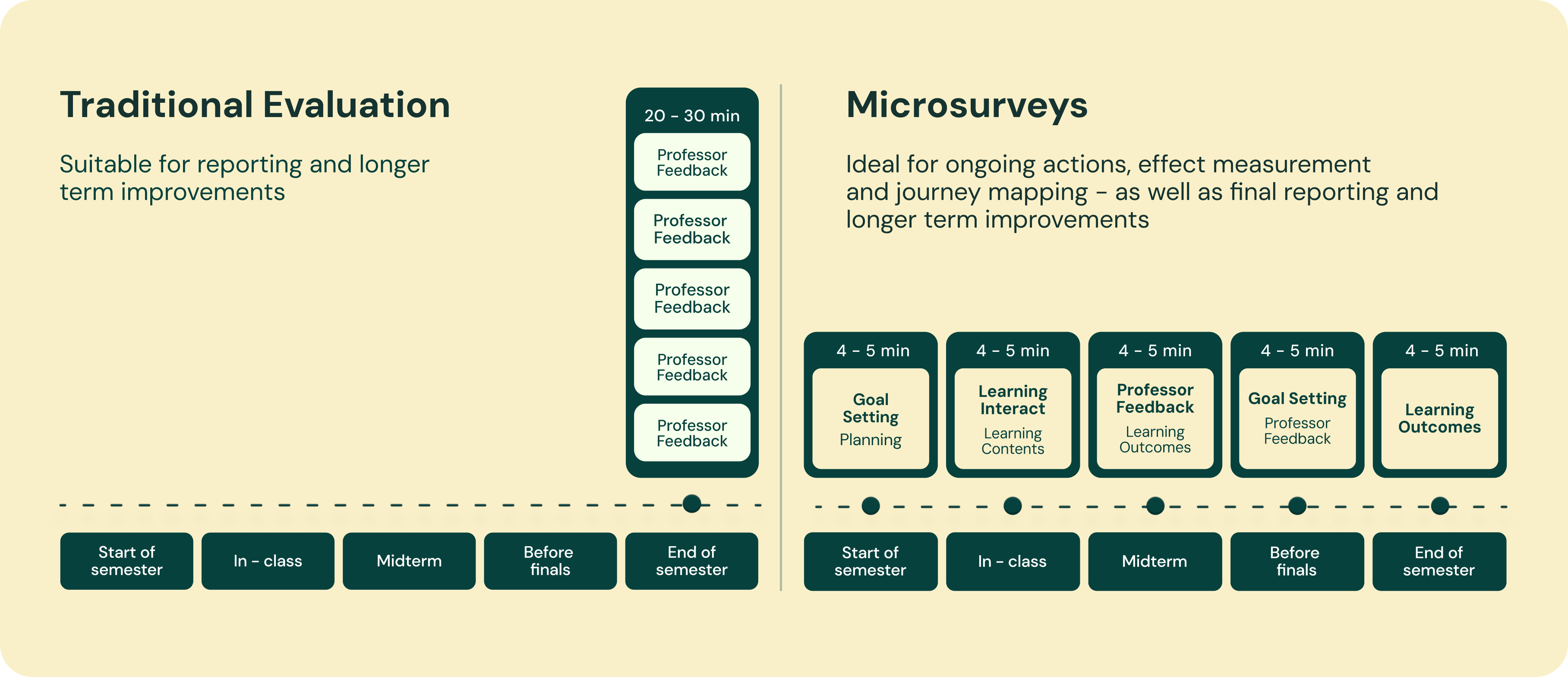
Most Quality Assurance systems rely on after-the-fact surveys. While useful for reporting, they miss the everyday insights that truly shape student experience.
Here’s where traditional QA struggles:
By the time institutions receive feedback, the semester is over. Students affected by issues never benefit from the improvements.
Long, formal surveys feel like a formality to students. They participate less because they rarely see impact.
Traditional QA often asks: “Did we meet the standard?”
Modern QA asks: “What do students need right now-and how do we respond?”
“Institutions feel the need to be responsive to student feedback, but this often leads to midterm assessments using written surveys, which contribute to survey fatigue and ultimately diminish student interest, lower response rates, and reduce the legitimacy of student views.”
When QA is reactive, universities risk missing early signs of disengagement, wellbeing struggles, or dropout risk.
Modern institutions are rethinking QA by embedding student voice throughout the academic year-turning feedback into a continuous cycle of listening, understanding, and acting.
Here’s what today’s leading QA practices look like:
Short, lightweight questions such as:
These offer high-frequency, high-quality insights without overwhelming students.

QA teams, student services, and educators monitor trends as they emerge-not months later.
Changes in wellbeing or engagement prompt immediate support, whether it’s a mentor check-in, a teaching adjustment, or wellbeing resources.
Students receive updates like:
“You said X-here’s what we improved.”
This builds trust and encourages future participation.
Modern QA isn’t just about data-it’s about responsiveness.
A continuous QA model impacts every aspect of the student experience:
Students who feel heard and supported throughout their journey show stronger connection, participation, and engagement.
Early signals allow early interventions. Institutions prevent issues from escalating into attrition.
Real-time feedback helps educators adjust teaching methods while the course is still running.
QA teams move from yearly reports to ongoing improvement- building a culture of responsiveness.
Universities adopting continuous QA report higher engagement, more authentic insights, and faster, more meaningful action.

We partner with universities to turn modern QA principles into everyday practice.
Here’s how StudentPulse supports a continuous, student-centred QA approach:
Short, student-friendly pulse surveys designed to reduce fatigue and increase honesty.
Dashboards that reveal emerging patterns in wellbeing, engagement, learning quality, and course experience.
Feedback activates real responses-from support outreach to peer mentoring to teaching tips.
QA teams can demonstrate measurable improvements:
StudentPulse isn’t an evaluation tool - it’s a continuous improvement engine.
This shift validates what many universities already feel: student experience can’t be assessed once a year. It must be understood continuously.
With a research-informed, student-centred QA approach, institutions gain:
Continuous QA doesn’t replace compliance-it strengthens it. And it creates safer, more responsive learning environments for every student.
At StudentPulse, we’re proud to help institutions move beyond the checkbox model and lead with evidence-based, student-first design.
Or read our QA e-book to learn more about this topic
